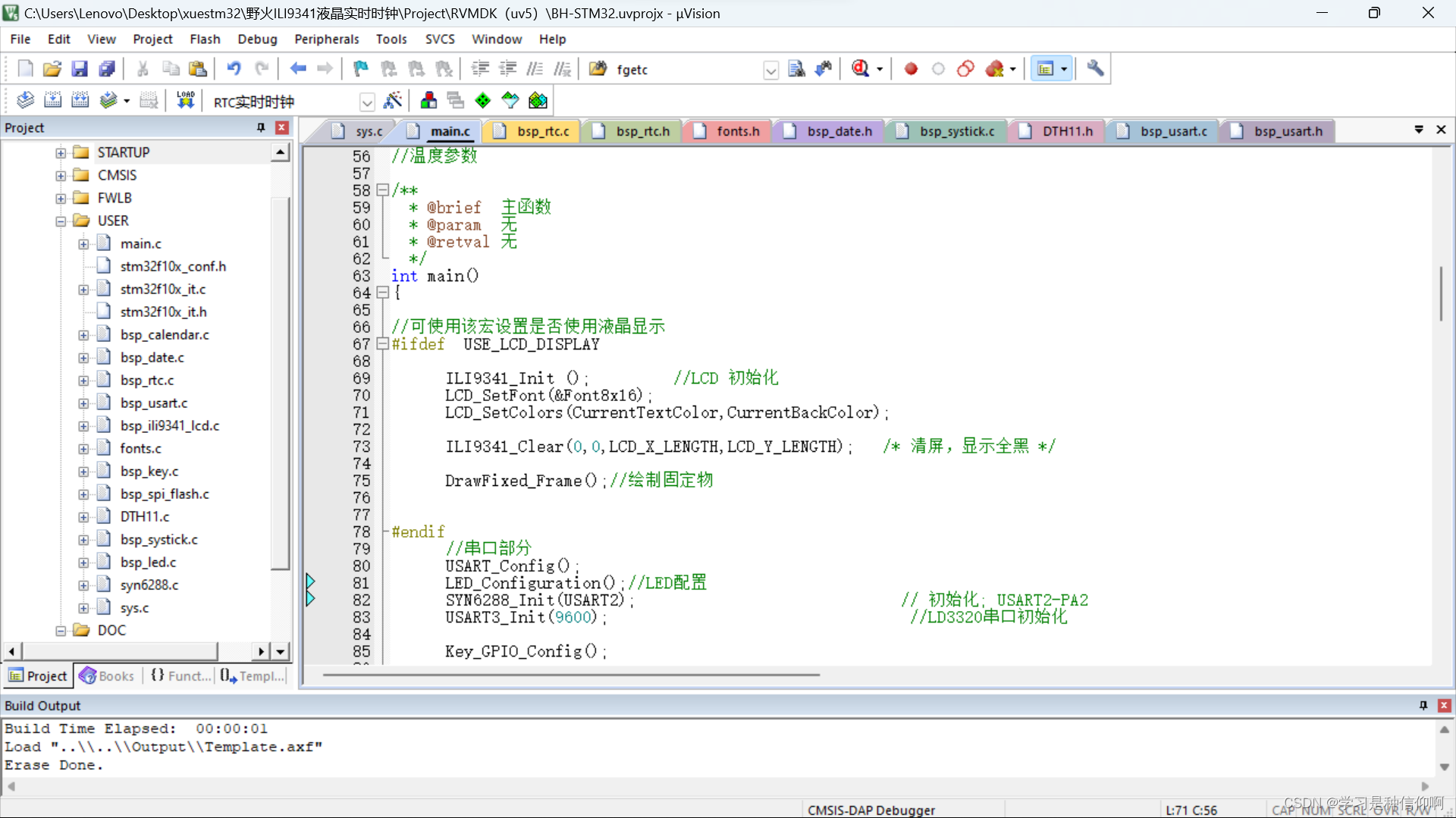JDBC初识
JDBC1. JDBC介绍Java Database Connectivity Java规定的数据库连接接口,SUN公司提供的,为了简化程序员操作数据库的过程。 SUN公司要求数据库提供商,按照JDBC API接口规范,完成对应Java程序的数据连接操作,规范Jar包,并且提供对应的操作方法。JDBC接口中核心的内容 java.sql.* javax.sql.*2. JDBC连...
·
JDBC
1. JDBC介绍
Java Database Connectivity
Java规定的数据库连接接口,SUN公司提供的,为了简化程序员操作数据库的过程。
SUN公司要求数据库提供商,按照JDBC API接口规范,完成对应Java程序的数据连接操作,规范Jar包,并且提供对应的操作方法。
JDBC接口中核心的内容
java.sql.*
javax.sql.*
2. JDBC连接数据库所需的必要条件
cmd > mysql -hlocalhost -uroot -p123456
- 明确连接使用的数据库是MySQL数据库
- 明确当前数据库的主机地址,IP地址,域名,localhost表示本地
- -uroot 用户名
- -p123456 对应用户名密码
JDBC连接数据库也是需要这四个条件的
- 确定连接的数据库所在网络地址和对应操作哪一个数据库
这里使用一个符合JDBC规范的URL
URL jdbc:mysql://localhost:3306/nzgp2001 - 用户名 user root
- 密码 password 123456
URL
含义
jdbc目前操作数据库的主协议
mysql子协议
localhost 数据库服务器所在的网路偶地址
3306 数据库默认端口号
nzgp2001 当前URL连接操作对应数据库是哪一个
JDBC是第三方提供的内容
获取对应的Jar
mysql-connector-java-5.1.47.jar
从官网获取对应的Jar包
mvnrepository Maven查询网址
3. JDBC连接MySQL数据库
3.1 操作流程
- 导入Jar包
在项目根目录创建lib目录,放入对应jar包,引入依赖 - 加载驱动
Java程序只是规定了接口规范,但是没有实现
数据库连接需要使用JDBC对应驱动 - 准备必要参数连接数据库
- 获取数据库连接
- 关闭资源
3.2 数据库连接演示代码
package com.qfedu.a_jdbc;
import java.sql.Connection;
import java.sql.DriverManager;
import java.sql.SQLException;
/**
* JDBC连接数据库操作,获取数据库连接方式
*
* @author Anonymous 2020/3/23 15:51
*/
public class Demo1 {
public static void main(String[] args) throws ClassNotFoundException, SQLException {
/*
1. 加载驱动
*/
Class.forName("com.mysql.jdbc.Driver");
/*
2. 准备必要的数据
*/
String url = "jdbc:mysql://localhost:3306/nzgp2001?useSSL=true";
String user = "root";
String password = "123456";
/*
3. 获取数据库连接
*/
Connection connection = DriverManager.getConnection(url, user, password);
System.out.println(connection);
/*
4. 关闭资源
*/
connection.close();
}
}
3.3 数据库驱动加载过程
public class Driver extends NonRegisteringDriver implements java.sql.Driver {
//
// Register ourselves with the DriverManager
// 在.class文件加载到内存时运行,并且有且只执行一次
// 代码初始化过程!!!
static {
try {
// DriverManager驱动管理器注册了当前com.mysql.jdbc.Driver
// 相对于当前Java程序拥有了连接MySQL数据库的必要的驱动条件
java.sql.DriverManager.registerDriver(new Driver());
} catch (SQLException E) {
throw new RuntimeException("Can't register driver!");
}
}
/**
* Construct a new driver and register it with DriverManager
*
* @throws SQLException
* if a database error occurs.
*/
public Driver() throws SQLException {
// Required for Class.forName().newInstance()
}
}
4. JDBC核心API[能记住最好,记不住拉倒]
class java.sql.DriverManager 驱动管理类
--| static java.sql.Connection getConnection(String url, String user, String password);
/*
这里是根据听的数据库连接URL,对应的user用户名和password密码,获取数据库连接对象
*/
interface java.sql.Connection 数据库连接接口
--| java.sql.Statement createStatement();
/*
获取数据库SQL语句搬运工对象,从Java程序搬运SQL语句到数据库中,同时Statement也是一个资源对象。
*/
--| java.sql.PreparedStatement prepareStatement(String sql);
/*
获取数据库SQL语句【预处理】搬运工对象,Java程序的SQL语句,在创建PreparedStatement对象时,将SQL语句交给数据库预处理操作,可以解决一定的【SQL语句注入问题】,同时提高一定的效率,PreparedStatement也是一个资源对象
*/
interface java.sql.Statement 数据库SQL语句搬运工对象
--| int executeUpdate(String sql);
/*
执行数据库修改数据,insert,update,delete...,返回值类型是int类型,是当前SQL语句搬运到数据库执行之后,数据库运行对于当前操作受到影响的行数
2 rows affected in 5 ms
*/
--| java.sql.ResultSet executeQuery(String sql);
/*
执行数据库查询语句,select操作,执行的结果是一个java.sql.ResultSet,结果集对象,当前操作返回值never null
*/
interface java.sql.PreparedStatement 数据库SQL语句【预处理】搬运工对象
PreparedStatement extends java.sql.Statement
--| int executeUpdate();
/*
执行数据库修改操作,insert,update,delete...处理的SQL语句是在创建PreparedStatement对象过程预处理的SQL语句,并且返回值是int类型, 为当前操作对于数据表中收到影响的行数
*/
--| java.sql.ResultSet executeQuery();
/*
执行数据库查询语句,select操作,的SQL语句是在创建PreparedStatement对象过程预处理的SQL语句,执行的结果是一个java.sql.ResultSet,结果集对象,当前操作返回值never null
*/
--| setXXX(int index, XXX value)
/*
PreparedStatement预处理的SQL语句是可以带有参数的,这里是对于SQL语句参数进行赋值操作,这里有指定的操作下标,和对应的数据,数据类型繁多
*/
interface java.sql.ResultSet 数据库结果集接口
--|XXX getXXX(int columnIndex);
/*
根据查询结果中,字段所处的位置下标获取对应数据,XXX是指定类型
*/
--|XXX getXXX(String fieldName);
/*
根据查询结果中,字段所处的字段名获取对应数据,XXX是指定类型
*/
--| boolean next();
/*
判断当前查询结果集中是否还有可以键遍历操作的数据,如果没有。或则当前结果集中是无数据情况 Empty Set,直接返回fasle
*/
5. Statement操作SQL语句
5.1 Statement插入SQL数据操作
@Test
public void testInsert() {
Statement statement = null;
Connection connection = null;
try {
// 1. 加载驱动
Class.forName("com.mysql.jdbc.Driver");
// 2. 准备必要的连接数据
String url = "jdbc:mysql://localhost:3306/nzgp2001?useSSL=true";
String user = "root";
String password = "123456";
//3. 获取数据库连接
connection = DriverManager.getConnection(url, user, password);
// 4. 获取Statement对象
statement = connection.createStatement();
// 5. 准备SQL语句
String sql = "insert into nzgp2001.user(userName, password) value ('老黑', '123456')";
// 6. 执行SQL语句
int affectedRows = statement.executeUpdate(sql);
System.out.println("affectedRows:" + affectedRows);
} catch (ClassNotFoundException | SQLException e) {
e.printStackTrace();
} finally {
// 7. 关闭资源
try {
if (statement != null) {
statement.close();
}
if (connection != null) {
connection.close();
}
} catch (SQLException e) {
e.printStackTrace();
}
}
}
5.2 Statement修改SQL数据操作
@Test
public void testUpdate() {
Statement statement = null;
Connection connection = null;
try {
// 1. 加载驱动
Class.forName("com.mysql.jdbc.Driver");
// 2. 准备必要的连接数据
String url = "jdbc:mysql://localhost:3306/nzgp2001?useSSL=true";
String user = "root";
String password = "123456";
//3. 获取数据库连接
connection = DriverManager.getConnection(url, user, password);
// 4. 获取Statement对象
statement = connection.createStatement();
// 5. 准备SQL语句
String sql = "update nzgp2001.user set userName ='航海中路彭于晏' where id = 1";
// 6. 执行SQL语句
int affectedRows = statement.executeUpdate(sql);
System.out.println("affectedRows:" + affectedRows);
} catch (ClassNotFoundException | SQLException e) {
e.printStackTrace();
} finally {
// 7. 关闭资源
try {
if (statement != null) {
statement.close();
}
if (connection != null) {
connection.close();
}
} catch (SQLException e) {
e.printStackTrace();
}
}
}
5.3 Statement删除SQL数据操作
@Test
public void testDelete() {
Statement statement = null;
Connection connection = null;
try {
// 1. 加载驱动
Class.forName("com.mysql.jdbc.Driver");
// 2. 准备必要的连接数据
String url = "jdbc:mysql://localhost:3306/nzgp2001?useSSL=true";
String user = "root";
String password = "123456";
//3. 获取数据库连接
connection = DriverManager.getConnection(url, user, password);
// 4. 获取Statement对象
statement = connection.createStatement();
// 5. 准备SQL语句
String sql = "delete from user where id > 2";
// 6. 执行SQL语句
int affectedRows = statement.executeUpdate(sql);
System.out.println("affectedRows:" + affectedRows);
} catch (ClassNotFoundException | SQLException e) {
e.printStackTrace();
} finally {
// 7. 关闭资源
try {
if (statement != null) {
statement.close();
}
if (connection != null) {
connection.close();
}
} catch (SQLException e) {
e.printStackTrace();
}
}
}
更多推荐
 已为社区贡献2条内容
已为社区贡献2条内容








所有评论(0)